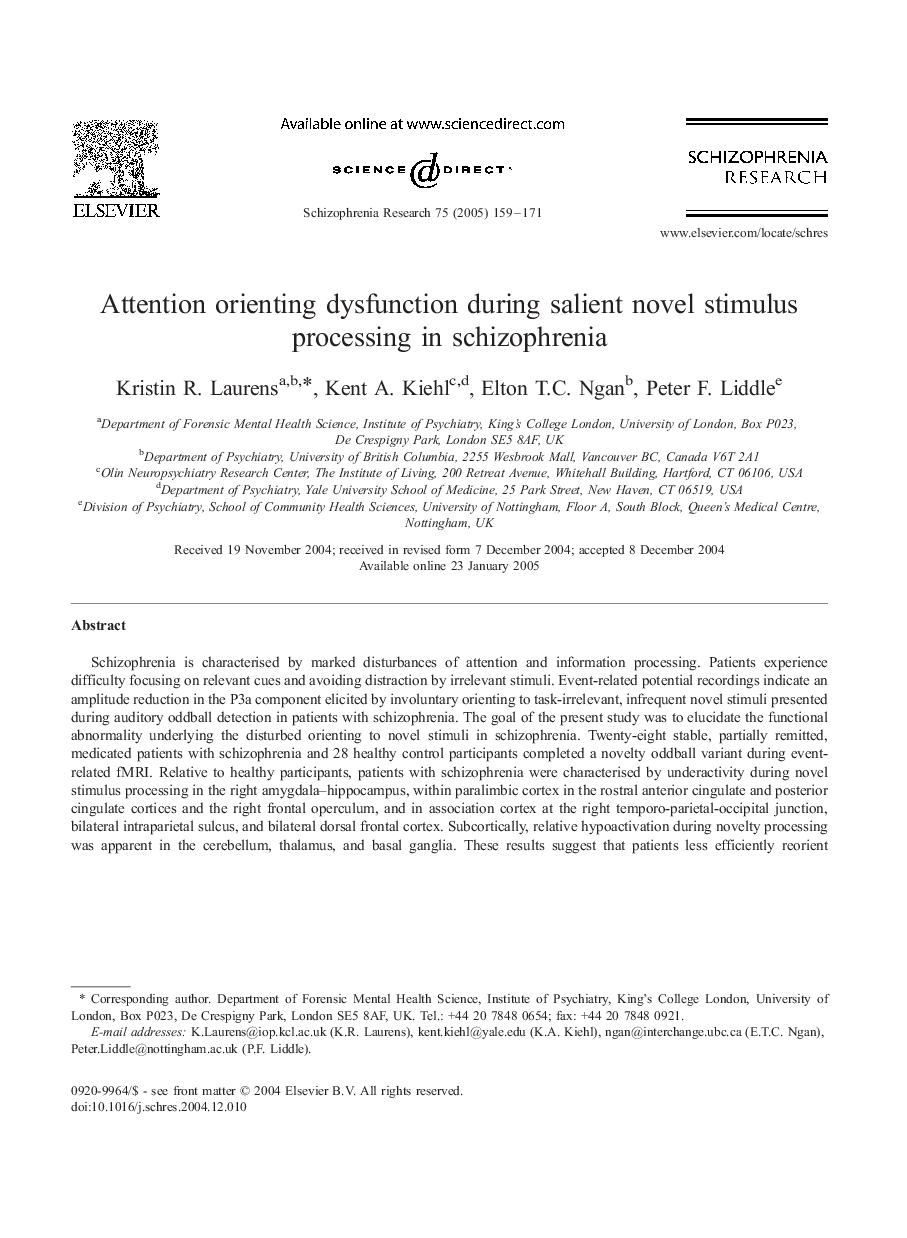| Article ID | Journal | Published Year | Pages | File Type |
|---|---|---|---|---|
| 9646412 | Schizophrenia Research | 2005 | 13 Pages |
Abstract
Schizophrenia is characterised by marked disturbances of attention and information processing. Patients experience difficulty focusing on relevant cues and avoiding distraction by irrelevant stimuli. Event-related potential recordings indicate an amplitude reduction in the P3a component elicited by involuntary orienting to task-irrelevant, infrequent novel stimuli presented during auditory oddball detection in patients with schizophrenia. The goal of the present study was to elucidate the functional abnormality underlying the disturbed orienting to novel stimuli in schizophrenia. Twenty-eight stable, partially remitted, medicated patients with schizophrenia and 28 healthy control participants completed a novelty oddball variant during event-related fMRI. Relative to healthy participants, patients with schizophrenia were characterised by underactivity during novel stimulus processing in the right amygdala-hippocampus, within paralimbic cortex in the rostral anterior cingulate and posterior cingulate cortices and the right frontal operculum, and in association cortex at the right temporo-parietal-occipital junction, bilateral intraparietal sulcus, and bilateral dorsal frontal cortex. Subcortically, relative hypoactivation during novelty processing was apparent in the cerebellum, thalamus, and basal ganglia. These results suggest that patients less efficiently reorient processing resources away from the ongoing task of detecting and responding to the task-relevant target stimuli. In addition, trend results suggest that patients experienced increased distraction by novel stimuli.
Related Topics
Life Sciences
Neuroscience
Behavioral Neuroscience
Authors
Kristin R. Laurens, Kent A. Kiehl, Elton T.C. Ngan, Peter F. Liddle,
